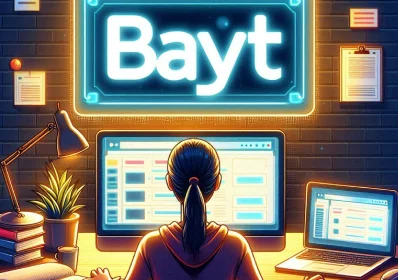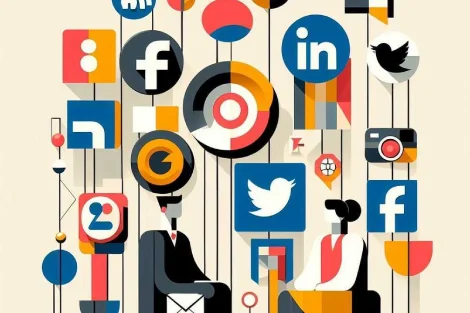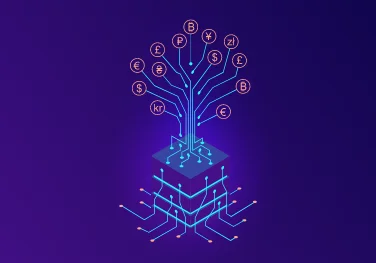Comprehensive Guide to Selecting the Tech Stack for Healthcare Applications

Introduction
In 2024, the healthcare industry has made huge strides compared to the past, where access to medical help was limited. Nowadays, there's a lot going on in healthcare, from getting medicine delivered online to new trends in developing healthcare apps. But despite all this progress, many app developers in healthcare still struggle with choosing the best technology to build their apps. In this quick blog, we'll talk about everything related to healthcare, technology, trends, and more. So, let's dive in and begin this journey into health tech!
An Overview of the Healthcare Market
Healthcare is changing fast, especially with digital advancements. It's becoming more affordable and accessible, even in places with fewer resources. COVID-19 made it clear that inclusive healthcare is crucial.
Mobile healthcare apps connect doctors and patients worldwide, making healthcare easier to access. But there's still room for improvement. Building a healthcare app needs technical and legal expertise, careful planning, and specialized help. Companies worldwide are working on apps that work well on smartphones and other devices.
Consumers might not know what to expect from a healthcare app. That's why we're going to talk about all the important stuff, like trends in healthcare app development and what it takes to build a good one.
What Is Healthcare App Development & Its Importance?
Healthcare app development involves the creation of software applications tailored to meet the specific needs of healthcare providers, patients, and other stakeholders within the healthcare ecosystem. These applications can range from electronic health records (EHR) systems and telemedicine platforms to fitness-tracking apps and medical diagnosis tools.
The importance of healthcare app development lies in its ability to improve access to healthcare services, enhance patient outcomes, streamline clinical workflows, and reduce administrative burdens. By leveraging technology, healthcare apps empower patients to take control of their health and enable healthcare providers to deliver personalized care more efficiently.
Types of Healthcare App Development Trends

Let's take a look at some exciting trends in healthcare app development:
Telemedicine and Remote Patient Monitoring
With telemedicine, patients can consult doctors remotely through video calls or chat. Remote patient monitoring involves using wearable devices to track health data and send it to healthcare providers.
Health and Wellness Apps
These apps help users manage their fitness, nutrition, mental health, and overall well-being. They may include features like workout plans, meal trackers, meditation guides, and sleep trackers.
AI-Powered Diagnostics
Artificial intelligence is being used to analyze medical data, such as imaging scans and lab results, to assist in diagnosis. AI algorithms can help detect diseases earlier and more accurately.
Blockchain in Healthcare
Blockchain technology ensures secure and transparent storage and sharing of medical data. It can enhance data security, interoperability, and patient privacy in healthcare applications.
Wearable Health Tech
Wearable devices, such as smartwatches and fitness trackers, enable real-time monitoring of vital signs, activity levels, and other health metrics. Integrating wearable technology into healthcare apps allows for continuous health tracking and personalized insights.
Also Read: How AI Can Be Beneficial to Healthcare Startups in 2024?
What is Tech Stack?

A tech stack refers to the combination of programming languages, frameworks, libraries, databases, and other tools used to build and deploy an application. Selecting the right tech stack is important as it directly impacts the performance, scalability, security, and maintainability of the application.
Types of Tech Stack for Healthcare App Development
The choice of tech stack may vary depending on the specific requirements of the healthcare application. Some commonly used tech stacks for healthcare app development include:
- Frontend: React.js, Angular, Vue.js
- Backend: Node.js, Python (Django, Flask), Java (Spring Boot), Ruby on Rails
- Database: MongoDB, PostgreSQL, MySQL
- Cloud Services: AWS, Azure, Google Cloud Platform
- Mobile Development: React Native, Flutter
How to Choose the Right Tech Stack for Healthcare App?

Choosing the right tech stack for a healthcare app is a crucial decision that can significantly impact its success. Here's a step-by-step guide on how to make the right choice:
Understand Your Requirements
Begin by understanding the specific requirements of your healthcare app. Consider factors such as the intended user base, functionalities, scalability needs, and regulatory compliance.
Research Existing Solutions
Look into existing healthcare apps similar to what you want to build. Analyze their tech stacks, features, and performance to gain insights into what works well and what doesn't.
Consider Scalability
Ensure that the tech stack you choose can scale along with your app's growth. Evaluate whether it can handle increased user traffic, data volume, and additional features in the future.
Prioritize Security
Security is paramount in healthcare apps due to the sensitive nature of patient data. Choose a tech stack with robust security features and consider compliance with healthcare regulations such as HIPAA.
Evaluate Interoperability
Healthcare apps often need to integrate with existing systems like electronic health records (EHR) and other healthcare IT infrastructure. Choose a tech stack that supports seamless interoperability and data exchange.
Assess Development Resources
Consider the availability of developers with expertise in the chosen tech stack. Assess whether your team has the required skills or if you need to hire external talent.
Review Performance Considerations
Evaluate the performance implications of your chosen tech stack, including factors like speed, responsiveness, and resource utilization. Optimize performance to ensure a smooth user experience.
Factor in Cost and Time
Consider the cost and time implications of your chosen tech stack, including licensing fees, development time, maintenance costs, and potential scalability issues.
Seek Expert Advice
If you're unsure about which tech stack to choose, consult with experienced developers, architects, or healthcare IT consultants. They can provide valuable insights and recommendations based on their expertise.
Stay Updated
Technology evolves rapidly, especially in the healthcare sector. Stay updated on emerging trends, new frameworks, and best practices to ensure your tech stack remains relevant and future-proof.
By following these steps and carefully considering your requirements, security needs, scalability, interoperability, and performance considerations, you can choose the right tech stack for your healthcare app development project.
Legal Compliances for Healthcare App
Compliance with regulatory standards is paramount in healthcare app development. Key legal considerations include:
- HIPAA Compliance: Ensuring adherence to HIPAA regulations governing the privacy and security of protected health information.
- GDPR Compliance: Compliance with the General Data Protection Regulation for handling the personal data of EU residents.
- FDA Regulations: Compliance with Food and Drug Administration regulations for medical devices and software applications.
How Can Innow8 Apps Help?
At Innow8 Apps, we specialize in developing custom healthcare solutions tailored to meet the unique needs of our clients. Our team of experienced developers, designers, and healthcare domain experts can assist you in selecting the right tech stack, ensuring compliance with regulatory standards, and delivering a robust and scalable healthcare application.
Conclusion
Selecting the right tech stack for healthcare app development is a critical decision that can significantly impact the success of your project. By understanding the unique requirements of the healthcare industry, prioritizing security and compliance, and leveraging innovative technologies, you can build a cutting-edge healthcare application that enhances patient care and drives positive outcomes.
FAQs
What are the key considerations when choosing a tech stack for healthcare app development?
Scalability, security, interoperability, compliance, and performance are key considerations.
Which programming languages are commonly used in healthcare app development?
Popular languages include JavaScript, Python, Java, and Ruby.
How can I ensure compliance with regulatory standards such as HIPAA?
Work with experienced developers who understand healthcare regulations and prioritize compliance in their development process.
How to Select Tech Stack for Building Healthcare Apps?
Recent Blogs:

Cost to Build a Job Portal Like Bayt
Discover the estimated costs involved in developing a job portal similar to Bayt. Learn abou...
Read More
Unlocking the Power of Social Media Marketing
Elevate your business with our ultimate guide to social media marketing. Unlock the secrets ...
Read More
Top Blockchain Platforms To Consider In 2024
Check out the top blockchain platforms in 2024. To develop blockchain using the best platfor...
Read More